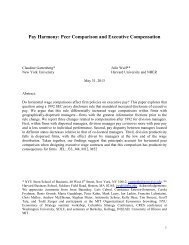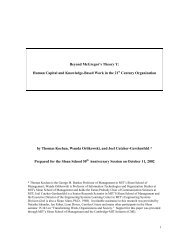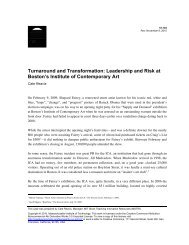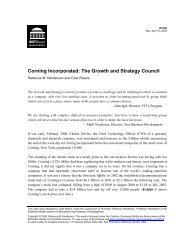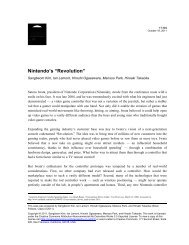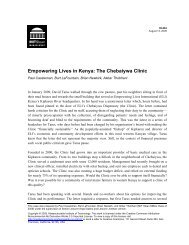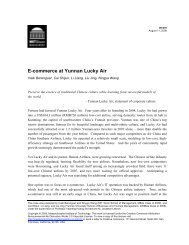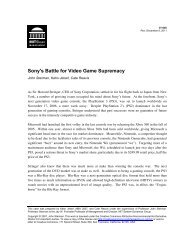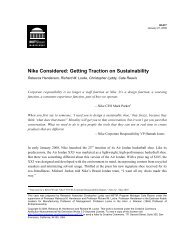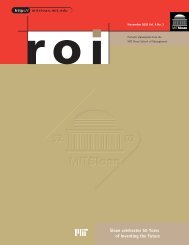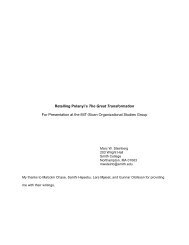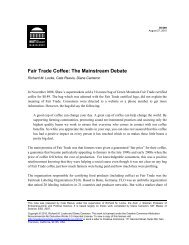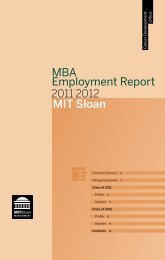Understanding earnings quality - MIT Sloan School of Management
Understanding earnings quality - MIT Sloan School of Management
Understanding earnings quality - MIT Sloan School of Management
You also want an ePaper? Increase the reach of your titles
YUMPU automatically turns print PDFs into web optimized ePapers that Google loves.
1) The market responds more favorably when <strong>earnings</strong> are composed <strong>of</strong> cash flows than accruals<br />
(Wilson, 1987). Bernard and Stober (1989), however, find that the results in Wilson (1987) are<br />
driven by two quarters.<br />
2) Investors discount discretionary accruals if they are made aware <strong>of</strong> them or if they can infer that<br />
they are more likely to represent <strong>earnings</strong> management (DeFond and Park, 2001; Balsam, Bartov,<br />
and Marquardt, 2002; Baber, Chen, and Kang, 2006; Gleason and Mills, 2008; Coles, Hertzel, and<br />
Kalpathy, 2006). Louis and Robinson (2005) similarly find that when managers combine<br />
discretionary accruals with another credible signal (i.e., a stock split), investors do not discount<br />
them.<br />
3) Negative special items (write-<strong>of</strong>fs or write-downs) are generally associated with a small negative<br />
stock price reaction <strong>of</strong> around one percent (Elliott and Shaw, 1988). When a firm has a history <strong>of</strong><br />
special items, the response coefficient associated with <strong>earnings</strong> before special items receive a lower<br />
weight (Elliot and Hanna, 1996). Variation in reactions to inventory write-<strong>of</strong>fs and restructuring<br />
charges suggest that they convey information about expected future performance (Francis, Hanna,<br />
and Vincent, 1996).<br />
4) Investors respond more strongly to pro-forma <strong>earnings</strong> than to GAAP <strong>earnings</strong> on average<br />
(Bhattacharya, Black, Christensen, and Larson, 2003). The coefficient is only significant for firms<br />
with relatively less informative GAAP <strong>earnings</strong>, as measured by historical ERCs (Lougee and<br />
Marquardt, 2004).<br />
5) Indicators <strong>of</strong> general financial reporting <strong>quality</strong> concerns are associated with negative stock price<br />
reactions. There is a strong negative stock market reaction to announcements <strong>of</strong> restatements and/or<br />
AAERs (Feroz et al., 1991; Dechow et al., 1996; and Palmrose, Richardson, and Scholz, 2004). The<br />
evidence is consistent, but the implications for EQ are ambiguous (see Section 3.3). The revelation<br />
121



